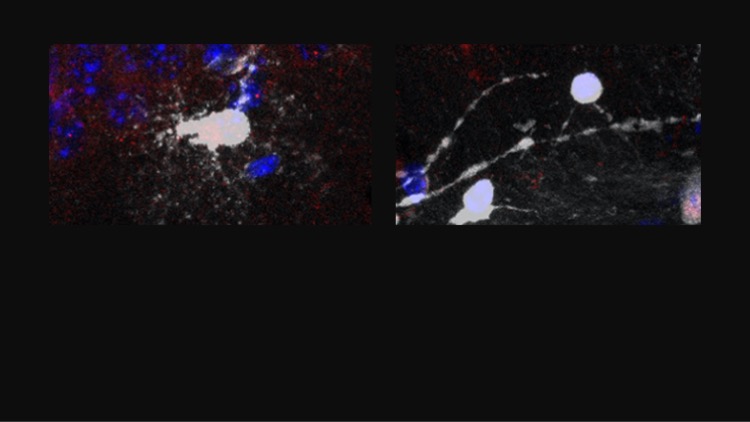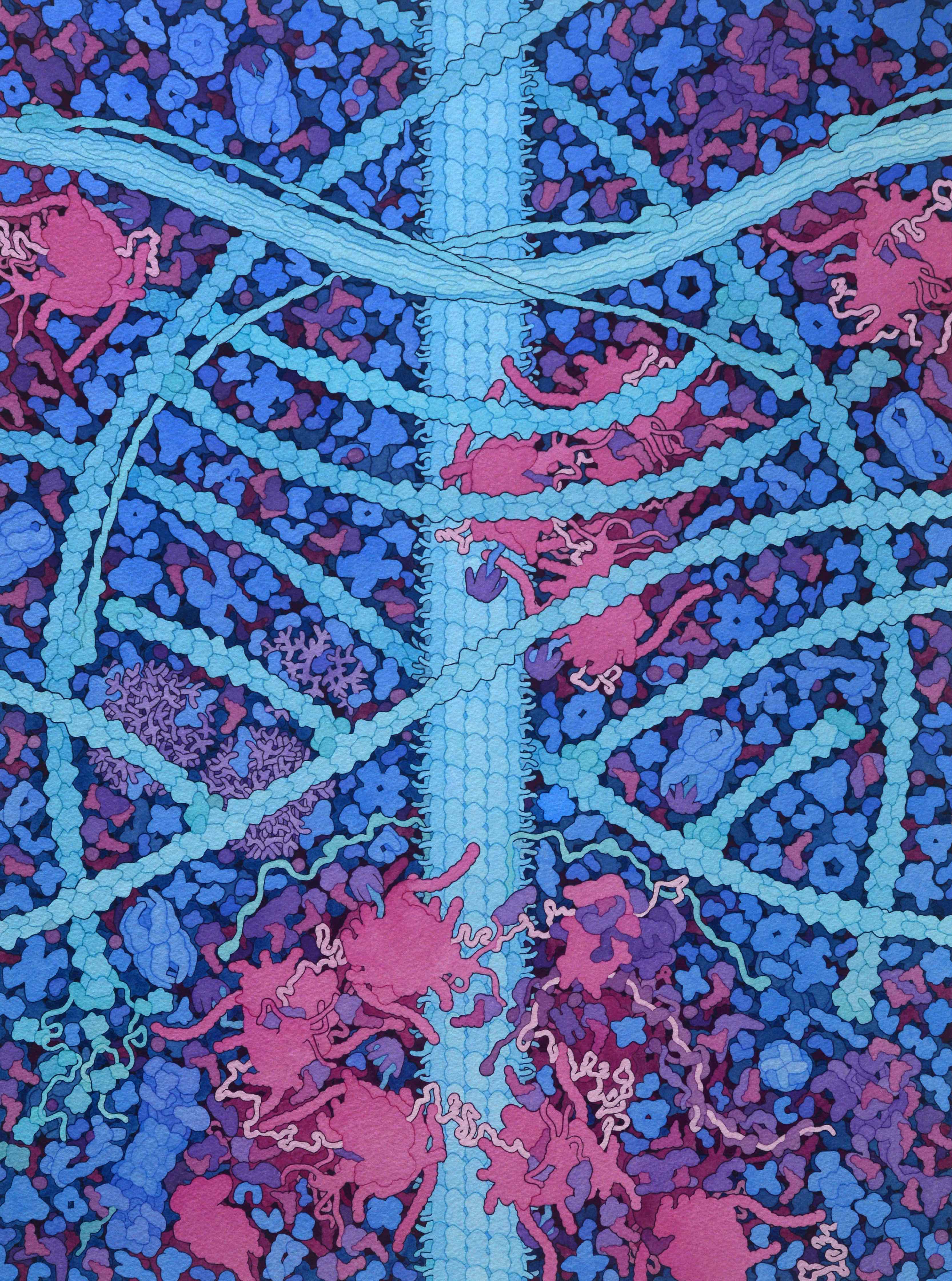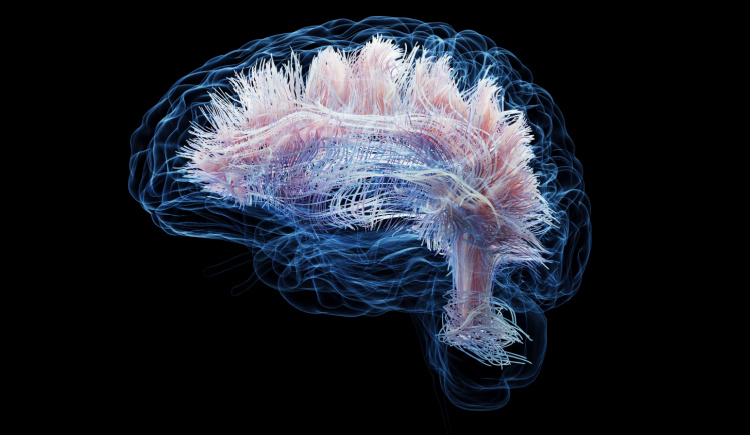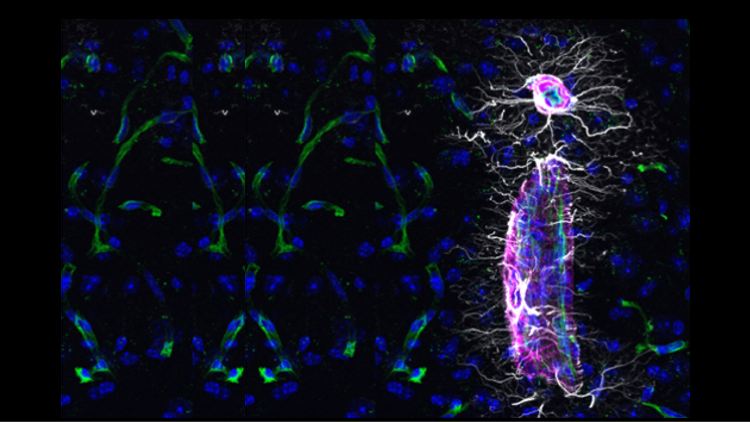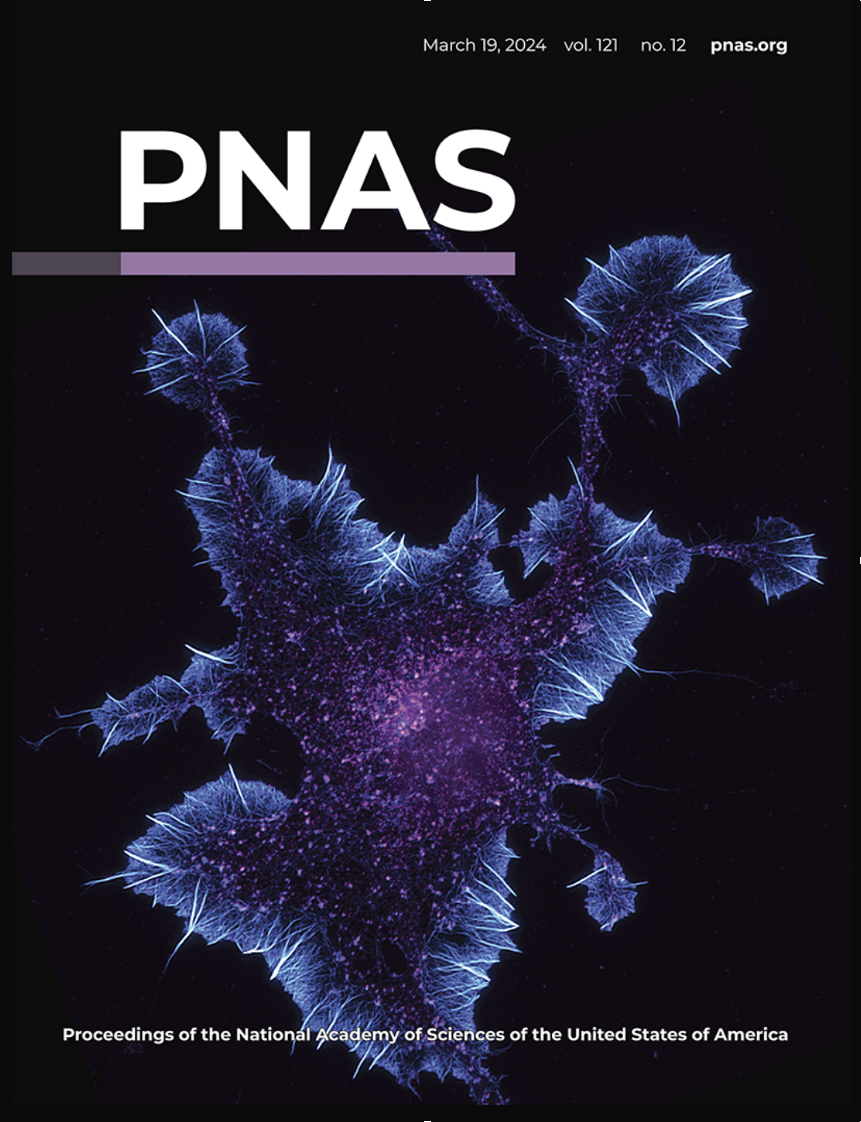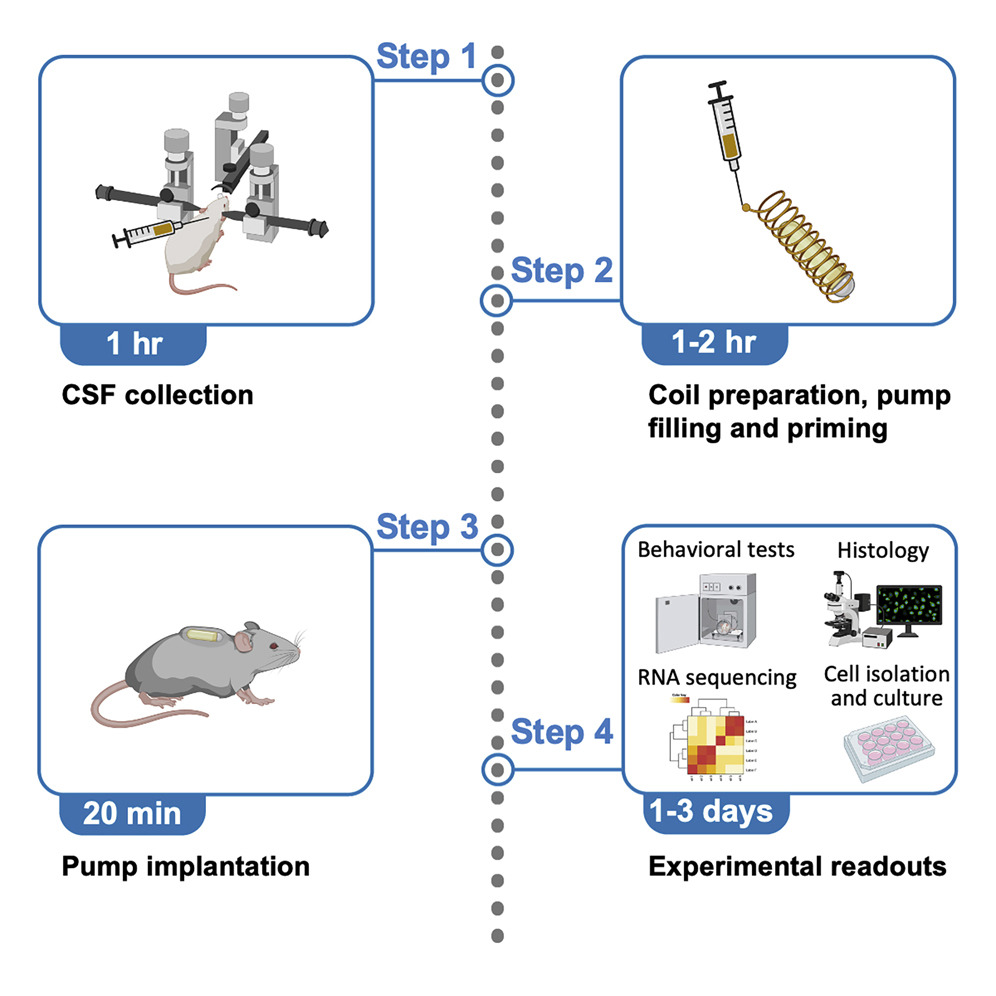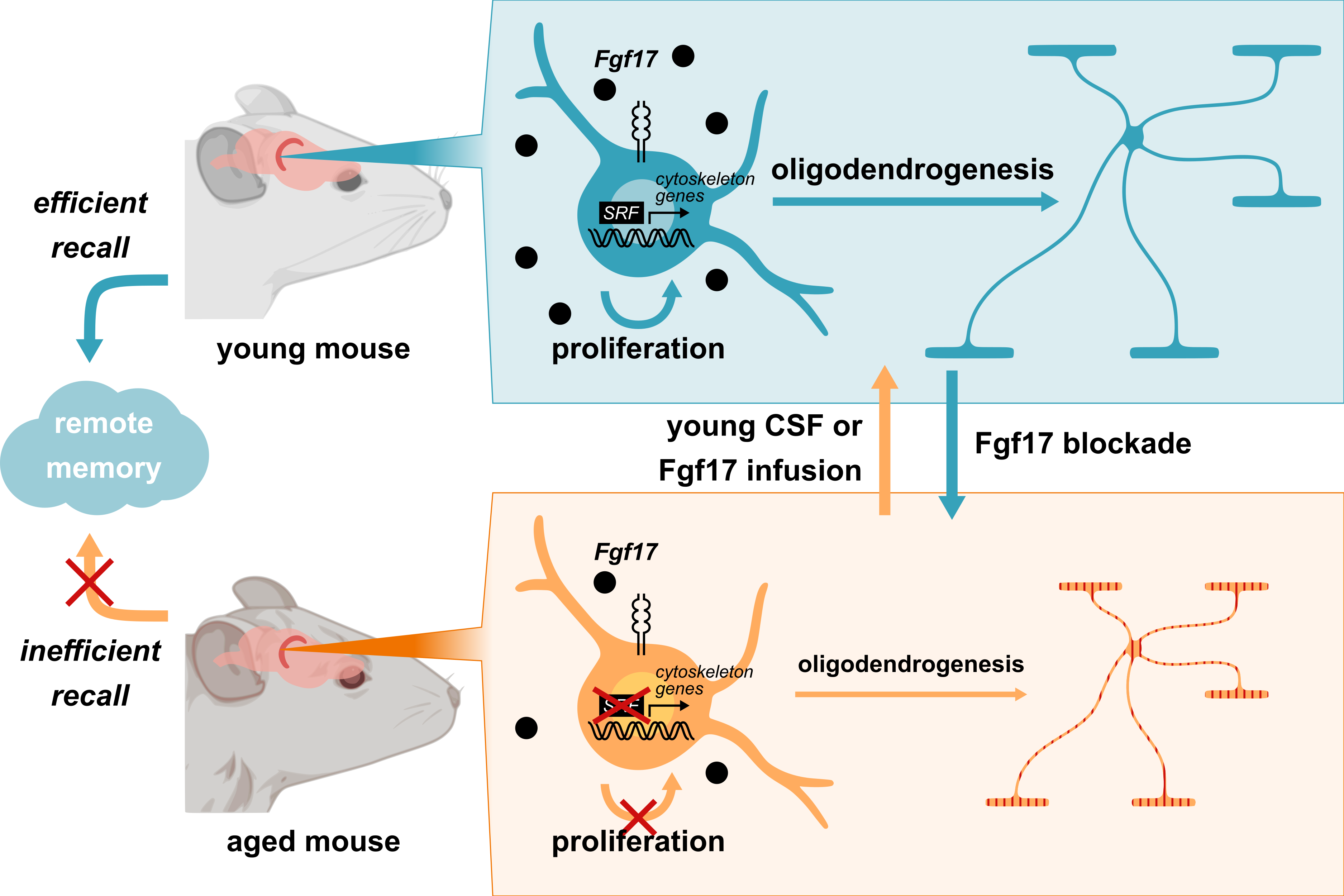Iram T., Kern F., Kaur A., Myneni S., Morningstar A. R., Shin H., Garcia M. A., Yerra L., Palovics R., Yang A. C., Hahn O., Lu N., Shuken S. R., Haney M. S., Lehallier B., Iyer M., Luo J., Zetterberg H., Keller A., Zuchero J. B. & Wyss-Coray T.
(2022)
Nature.
605,
7910,
p. 509-515
Recent understanding of how the systemic environment shapes the brain throughout life has led to numerous intervention strategies to slow brain ageing13. Cerebrospinal fluid (CSF) makes up the immediate environment of brain cells, providing them with nourishing compounds4,5. We discovered that infusing young CSF directly into aged brains improves memory function. Unbiased transcriptome analysis of the hippocampus identified oligodendrocytes to be most responsive to this rejuvenated CSF environment. We further showed that young CSF boosts oligodendrocyte progenitor cell (OPC) proliferation and differentiation in the aged hippocampus and in primary OPC cultures. Using SLAMseq to metabolically label nascent mRNA, we identified serum response factor (SRF), a transcription factor that drives actin cytoskeleton rearrangement, as a mediator of OPC proliferation following exposure to young CSF. With age, SRF expression decreases in hippocampal OPCs, and the pathway is induced by acute injection with young CSF. We screened for potential SRF activators in CSF and found that fibroblast growth factor 17 (Fgf17) infusion is sufficient to induce OPC proliferation and long-term memory consolidation in aged mice while Fgf17 blockade impairs cognition in young mice. These findings demonstrate the rejuvenating power of young CSF and identify Fgf17 as a key target to restore oligodendrocyte function in the ageing brain.


